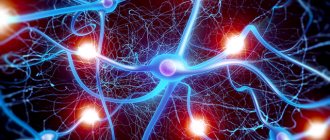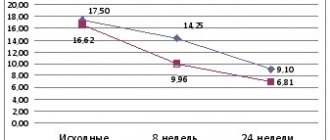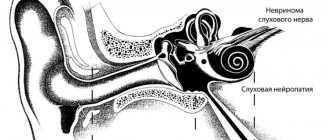“The world is changing too quickly, and it affects the psyche”
St. Petersburg once again took first place in the ranking of regions of the country in terms of the number of patients with diagnosed mental disorders. There are 4,737 such patients in the yellow city of Dostoevsky.
How does climate affect a person's state of mind? Why do people become more anxious with each generation? How to understand that you have depression and not trivial laziness? The Rosbalt correspondent asked these questions to Natalya Medvedeva
, psychiatrist and psychotherapist at the Institute of the Human Brain named after. N.P. Bekhterev RAS.
Natalya Svyatoslavovna continues the famous Bekhterev dynasty, three generations of which served medical science: the famous Russian physiologist, neuropathologist and psychiatrist Vladimir Mikhailovich Bekhterev, his granddaughter, neurophysiologist, laureate of the USSR State Prize Natalya Petrovna Bekhtereva and great-grandson Svyatoslav Vsevolodovich Medvedev, ex-director of the Brain Institute.
— Natalya Svyatoslavovna, do you think that geographic location can really influence a person’s nervous state?
— I have not seen large-scale studies that would confirm such a correlation, but in general, yes, the climate has a great influence on the psyche. Thus, St. Petersburg's unstable weather with temperature changes, when it is +25 in the morning and +10 in the evening, affects the body as a whole.
Add here humidity and a small number of sunny days - there is a direct effect on both the vascular and respiratory systems. Against the background of chronic diseases, various mental and psychological difficulties may arise. A lack of vitamin D leads to decreased mood.
2925 Ways to cope with isolation
It is also believed that St. Petersburg is a point of attraction for talented and creative people. However, research confirms that the psyche of such people is no more susceptible to disorders than others.
— Is it true that the psyche of residents of megacities is weakened faster than those who live on the periphery?
— Definitely, because a big city means a fast pace, a high level of stress, uncertainty, to which it is difficult for a person to adapt. We run all the time and constantly think about what we have done or what we will do. We are not in the present moment.
In the provinces, people are more “in the moment”, have the opportunity to observe themselves and reflect. It has its own characteristics, for example, a high level of alcohol abuse, which also leads to health consequences. But I'm talking specifically about stress and anxiety disorders.
By the way, this is why it is recommended not to forget about vacation - its absence has a monstrous effect on the psyche. You also need to train yourself to stop every day, breathe out and ask what is happening to you.
— Perhaps such high numbers of mental disorders indicate that people in big cities simply do not consider it shameful to turn to specialists?
— Yes, in big cities, turning to a psychologist or psychotherapist is not as stigmatized as in small towns. If we look at our statistics, we are talking specifically about initially identified cases, that is, those when people came to a specialist on their own.
5105
Heal me completely
The fact that St. Petersburg and Moscow are at the top of this rating also indicates that more people live there, and therefore more diseases. Specialists are more accessible, there are many good doctors who you can contact for free. In other cities, the situation is more complicated; as part of compulsory medical insurance, you can get help at a psychoneurological dispensary at your place of residence, but, alas, there are not enough of them either. That is, our diagnostic situation is better. Many patients purposefully come from the regions to St. Petersburg doctors.
In general, 4,737 people with disorders in a city of five million is not enough, less than 1%. And I would not be tied to these statistics: to understand the spread of pathology, a long-term epidemiological study is needed, but such studies have not been conducted.
— What are the most “popular” mental disorders in Russia?
“There is no reliable data on this either, but, in my opinion, today there is a lot of anxiety, stress, neuroses, and panic attacks. There is a story here with “fashionable” diseases - there is always something that is talked about more in the media.
This happened with panic attacks - and perhaps people became more aware of what was happening to them. Recently, the World Health Organization named burnout a mental illness, they began to talk about it more and people began to notice these symptoms more often.
By the way, according to WHO data as of October 4, 2020, in the near future, one in four people will experience a mental or neurological illness at some point in their lives. Today, 45 million people suffer from them in the world, and depression is the leading cause of disability. The world is changing too quickly, and this affects the psyche.
4997
It's not like that: seasonal depression is beneficial!
— Has the attitude towards psychologists and psychotherapists in our country as a whole become more positive?
— Yes, people today are less afraid of psychiatrists and remember punitive psychiatry less. I have noticed that in the last few years people come to a specialist not to cure something - when they have already gone through all the circles of hell. They come with questions about what is normal and what is not.
This is a good trend - mental hygiene is emerging, a check-up not only of the body, but also of the psyche. After all, the sooner you pay attention to the problem, the cheaper and easier it is to achieve a stable result.
— When should you see a doctor? Are there any early warning signs to watch out for?
— The first sign is when you cannot explain your anxiety, and it is constantly with you. In general, you need to understand that anxiety is not always bad, it protects us, it is a basic emotion, an evolutionarily created mechanism. After all, our emotional system exists so that we react faster to stimuli - before we analytically digest what is happening in the cerebral cortex. So, if you are walking through the forest and see something that looks like a snake, you jump to the side. This is an emotion. And only then does the brain analyze whether it was a stick or a snake. But if you had analyzed it first, you might have already been bitten.
However, there is one “but” here - emotions must always be recognized. Not to suppress - because they are all useful in their own way - but to understand what you feel and why. The more we differentiate between them, the more options we have for action.
6008
Depressive Russia
If you cannot deal with anxiety, for example, and it is background, you need to contact a psychologist so that he can help you understand it and learn to control it. If fear arises in specific situations, for example, in a crowded train or subway car, you can also ask a specialist to teach you how to cope with it.
And if you have been in a bad mood for more than two weeks, loss of energy, increased fatigue, decreased self-esteem and self-doubt, sleep disturbances, increased irritability, consult a specialist.
- Who should I go to? Psychologist, psychotherapist, psychiatrist? Many people don't see much difference...
— There are also coaches - these are specialists who work in the “green zone” with positive psychotherapy, which teaches you to look into the future and achieve results.
A psychologist is a specialist with a psychological education, he also works with healthy people. But it is better if he acts in tandem with a psychotherapist and if any dangerous symptoms appear, for example, subdepression or endogenous depression, he can refer the patient to him.
A psychotherapist is a psychiatrist who has received additional education in psychotherapy; he works with symptoms and suffering, and can help you understand both yourself and the disease. This is already a “yellow-red zone”.
A psychiatrist is a doctor who deals with pharmacotherapy and treats severe cases, schizophrenia, bipolar disorders.
— How to choose a good specialist?
— In Russia, public organizations are now beginning to develop, just like in Europe and America; they are very important for the professional community. I am a member of the ethical committee of the Russian Psychotherapeutic Association and I know that if a specialist is a member of the association, this is a guarantee of quality.
You can also ask psychologists or psychotherapists for a diploma in education, whether he undergoes supervision - consultations with more experienced specialists. It is also important that the psychologist or psychotherapist does not violate the client’s boundaries. For example, it is impossible for a patient to have a dependent relationship with a doctor - to work with him or study with him, there should be no personal relationship between them, and so on.
— Many people are afraid that the psychotherapist will start “stuffing” them with pills. Is pharmacotherapy common in our country, for example, in the treatment of depression?
6745
“Psychiatrists and psychotherapists are subject to stigma”
“There are different types of depression, and the first thing you need to understand is that it is often quite a dangerous disease, it cannot be cured by talking, and it is not laziness, as our parents believed.
In Russia, doctors prescribe medications where it is really necessary, and at the same time use psychotherapeutic methods. If the condition does not require pharmacotherapy, the doctor will refer you to a psychotherapist or psychologist.
But we have a very thoughtful, evidence-based and competent, in my opinion, approach. You can compare it with practice in the USA - they have a strong emphasis on pharmacotherapy, tablets are prescribed more often. But it is worth understanding that there are mental illnesses that cannot be cured without medication support - bipolar disorders, endogenous depression, schizophrenia. It is important that the person is explained that his problems cannot be solved with a simple consultation, the matter is in physiology, and it is important to relieve the severity of the symptoms.
— Are mental disorders generally treated or is this a death sentence?
—
There are severe illnesses that require long-term treatment, but, as a rule, this is not a death sentence at all. If you seek help in a timely manner and adhere to the treatment regimen, you can be cured or maintain a long remission. Such people work successfully and create families.
— So, Russians with a history of mental disorders do not have problems finding employment? Many people do not want to contact a specialist precisely for this reason - that everyone will find out about the problems...
—
According to the law, a certificate stating whether a person is registered in a psychoneurological dispensary is required only for decreed sections of the population - in institutions where they work with children, when registering for the military, as well as when applying for civil service in bodies and institutions of the prosecutor's office, and so on. In other cases, the employer does not have the right to demand it.
Regardless of whether you are visiting a private or public specialist, the patient’s mental state is a medical confidentiality. And it is impossible to obtain information about whether a person is registered without an official specific request from law enforcement agencies.
Interviewed by Angela Novoseltseva
What are mental processes?
Mental processes are all forms of mental activity that give a person information about the world around him at different levels, and also organize the acquired knowledge in such a way that it can be stored and reproduced. These are all channels of communication between a person and the world: sensations, speech, memory, emotions. That which is always near us and inside us. Each mental process has a number of features and patterns characteristic only of it, but they are all closely interconnected with each other, merging into one holistic architecture of the psyche.
Mental processes reflect reality through various forms of neuropsychic phenomena. They provide “material” for the formation of structural units of a person’s inner world and are opposed to all bodily or physiological reactions of the body.
Mental processes:
- They are caused by internal irritants of the nervous system, as well as external influences.
- They have their own beginning, development and end, which are manifested by different mental reactions.
- The completion of one stage is associated with the beginning of the next. This is the principle of continuity of the psyche during waking moments.
- They don’t just leave an “imprint” from external stimuli, but correlate it with the picture of personal experience and third-party observation of the world around them.
- They not only “revive”, but “animate” the body.
Mental processes, together with the properties and states of the individual, take part in the organization of all forms of manifestation of the psyche. But mental states are static, and processes are a dynamic structure that not only participates in life, but develops in it. That is, a person’s entire life will improve. Psychological processes, together with innate characteristics and external conditions, form the mental characteristics of the individual: temperament, character, motivation, abilities.
Take a temperament test
Psychological metaphor for better understanding of mental processes.
Psychology, even applied psychology, cannot be called an exact science. It is not easy for a person without special knowledge or a technician who is used to thinking in formulas to understand it. To connect complex scientific language to everyday experience, scientists use metaphors. To explain the essence of mental processes, psychologists use the “Bus” metaphor:
- Imagine that you are a bus driver on a life-long route.
- At each stop you pick up different passengers. These are personal memories, bodily sensations, attachments, thoughts, emotions, knowledge, habits, skills.
- You like some of the passengers. So cute, they evoke only positive associations. This is the embodiment of your pleasant memories that you want to keep longer.
- There are some that are unpleasant to you. These are angry, aggressive passengers. You want them to get off quickly or change to another bus. They embody your pain, traumatic memories.
- Gradually, there are so many passengers that they want to drive the bus themselves or change the route.
- You, as a driver, must make a decision: accept their demands, give up control, let them out while driving, or try to negotiate with them. But it’s worth remembering: if your route depends only on the will of the passengers, life will become unbearable. And if the circumstances are unfortunate, an accident may occur - a personality disorder.
- But there is another solution: make a stop, get to know all the passengers, evaluate their strengths or weaknesses, accept them and stop fighting. And then – follow where you need to go.
Do you want to make better decisions, find your ideal career, realize your maximum potential and receive instructions for individual development?
?
Find out what kind of person you were destined to be at birth using the Human Design
. Only 2 days for wikigrowth.ru readers participation is free. Get it now
There are three main postpartum disorders of varying severity.
1. Maternal melancholy is a condition that is quite common for most women immediately after childbirth. Its onset occurs 3-10 days after birth and usually disappears over the next two weeks. According to statistics, up to 80% of all women giving birth experience maternal melancholy. It manifests itself in the form of fluctuating mood, anxiety, sadness, general fatigue and insomnia. The exact cause of maternal melancholia is unknown, but, unlike other postnatal disorders, susceptibility to it is almost independent of psycho-social factors. It affects women of completely different social classes, cultures and nationalities, so doctors and researchers are inclined to believe that there are biological reasons for its occurrence. But, despite this, there are categories of women who need to monitor the development of melancholy more closely than others. These include women experiencing pregnancy and childbirth for the first time, as well as those prone to depressive disorders. In these groups, there is a particularly high chance of melancholia developing into postpartum depression or psychosis.
2. 20% of women who give birth develop postpartum depression. Unlike melancholy and psychosis, depression can develop covertly within 3 weeks after childbirth. The symptoms are similar to postpartum melancholia and psychosis, but are more monotonous. To the already mentioned absent-mindedness, a state of deep sadness, general fatigue and anxiety, self-deprecating statements are added, thoughts are concentrated around one’s own worthlessness and uselessness. There is sensitivity to cold, dry skin, slow thinking, constipation and fluid retention. Suicidal tendencies are common.
Postpartum depression has both biological and social origins. Biologically, women with a genetic predisposition to depression are more prone to it. Women with a history of postpartum depression have a 50% risk of developing postpartum depression in subsequent pregnancies. The development of depression is also influenced by low socioeconomic status, isolation from family and friends, and the status of the so-called single mother. The risk group also includes women who are not psychologically prepared for lifestyle changes and do not find support from others. It also affects women who had complications during childbirth, were separated from the child immediately after birth, and also went through a caesarean section.
3. Postpartum psychosis is the most terrible disorder for a young mother, which can cause harm to both her and her newborn. This condition develops in 1-2 cases per 1000 births and usually “breaks through” by the end of the second week. The next peak in the development of the disease occurs 1-3 months after birth.
The onset of this dangerous condition can be mistaken for maternal melancholy, but if you do not pay attention to it and do not take appropriate measures, the consequences can be irreparable. Women suffering from postpartum psychosis experience memory impairment, anxiety, irritability - the same signs as postpartum melancholy, so many sufferers of this illness (or relatives helping them) do not pay any attention to them. A signal of approaching postpartum psychosis will be symptoms of emotional burnout of the mother: a deficit of empathy, indifference, or mild (at first) aggression towards her child. Insomnia increases, which has nothing to do with caring for the newborn, and sometimes does not bring discomfort to the mother. Auditory hallucinations and obsessive thoughts are possible. Another sign of postpartum psychosis will be mood swings from deep depression to euphoria and back, reminiscent of bipolar disorder. Light periods of mood can give false impressions of recovery. The woman (and her loved ones) may consider that the disease has subsided and stop paying attention to her mental state. It is important to remember that the murder of a child by a mother suffering from postpartum psychosis accounts for 4% of all newborn deaths. Moreover, 50% of the killed babies died after the mother’s acute symptoms of psychosis had disappeared, that is, when it seemed to others that the woman had already returned to normal. Most often, advanced postpartum psychosis develops into a stage of deep depression, reminiscent of mania and is therefore considered a special variant of bipolar affective disorder. Only sometimes can psychosis go away on its own; in most cases, work with a specialist is necessary.










